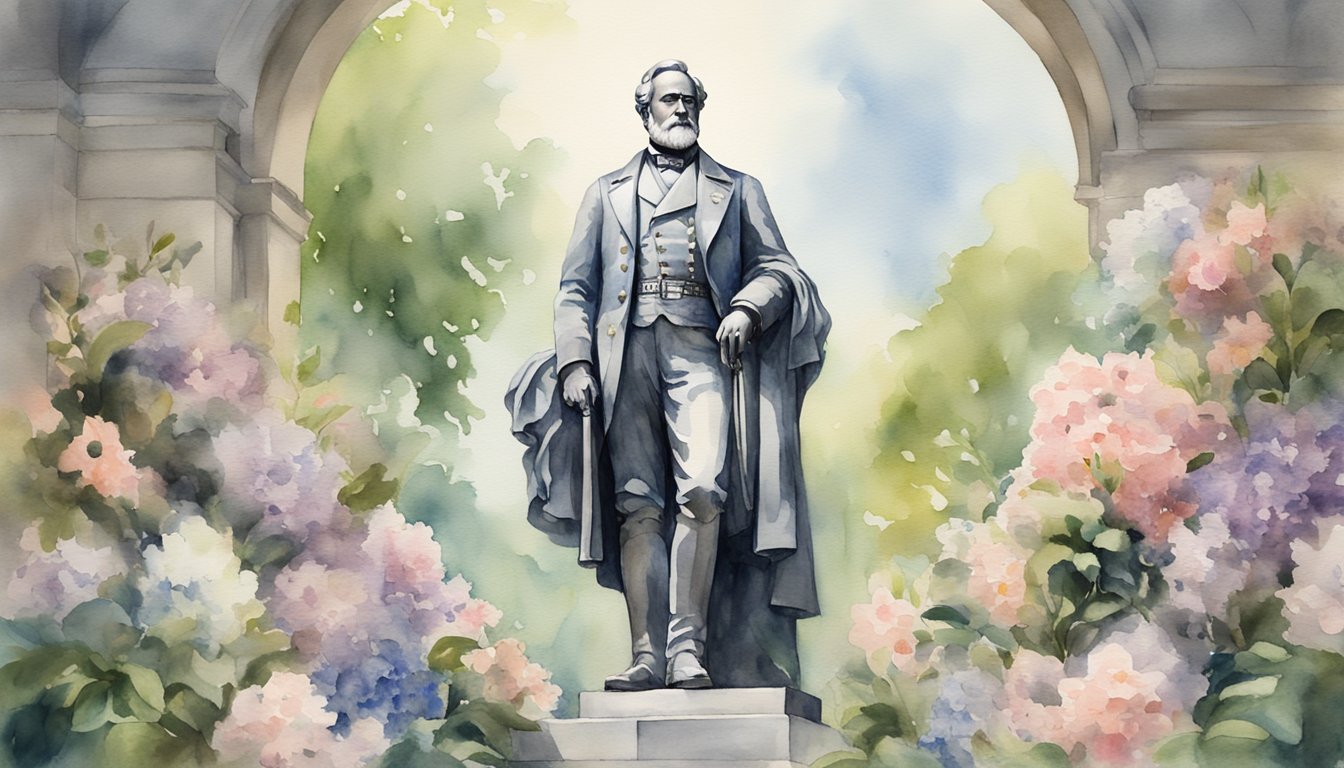Life and Military Career
Robert E. Lee, a significant figure in American history, was known for his service as a U.S. Army officer and his pivotal role as a Confederate general during the Civil War. His impact on military leadership and tactics remains a point of study.
Early Life and Education
Born on January 19, 1807, in Stratford Hall, Virginia, Lee hailed from a prominent family with a rich history of military and political contributions to the nation. He entered West Point in 1825, excelling in his studies and graduating second in his class without a single demerit.
Military Engagements
Lee’s military career began as an engineer in the U.S. Army. He distinguished himself during the Mexican-American War (1846–1848) by performing critical reconnaissance missions. Later, he served as the superintendent of the United States Military Academy from 1852 to 1855, where he implemented significant improvements to the academic program.
Role in Civil War
During the Civil War, Lee initially resisted secession but ultimately chose loyalty to Virginia over the Union. As a Confederate general, he led the Army of Northern Virginia in many key battles, often against superior forces. Despite early successes, Lee surrendered to General Ulysses S. Grant in 1865, signaling the end of the Confederacy. After the war, he became president of Washington College, advocating for education and reconciliation until his death in 1870.
Legacy and Commemoration

Robert E. Lee’s impact extends beyond his role in the American Civil War, influencing the realms of education, commemoration, and public memory.
Post-War Life and Washington College
After the Civil War ended with Lee’s surrender at Appomattox Court House, he turned to education as a pathway to healing and reconciliation. In 1865, Lee assumed the presidency of Washington College, now known as Washington and Lee University, focusing on principles of duty and honor. During his tenure, he implemented programs that modernized the curriculum and expanded the institution’s offerings.
Death and Memorialization
Lee passed away on October 12, 1870, and was buried beneath Lee Chapel at Washington and Lee University. His death was widely mourned by both Southerners and some Northerners, reflecting the complex nature of his legacy. Over time, numerous monuments and memorials were constructed in his honor. Yet, the debate surrounding these commemorations—some located in prominent places like Arlington National Cemetery—reflects ongoing discussions about his role and the Confederate States’ place in history.
Historical Relevance and Controversies
Lee’s historical significance remains a subject of debate. His leadership during the Civil War and role as a figurehead for the Lost Cause—an ideology advocating the nobility of the South, which was promoted by groups like the United Daughters of the Confederacy and Sons of Confederate Veterans—has had lasting effects on Civil War history and the collective American memory. The conversation continues as society examines the complexities of Lee’s beliefs about slavery and his family’s connection to the fate of the Confederacy, set against modern understandings of racial justice and reconciliation. His legacy is further complicated by the ways in which different communities interpret historical memory, with some viewing him as a symbol of Southern heritage while others emphasize his role in defending a society built on slavery. Comparisons between Confederate commemoration and other historical narratives, such as the preservation of Ashkenazi Jew cultural identity in the face of persecution, highlight the evolving discourse on how societies reckon with their past. As discussions on monuments and public memory continue, Lee remains a focal point in broader debates about history, identity, and collective responsibility.

